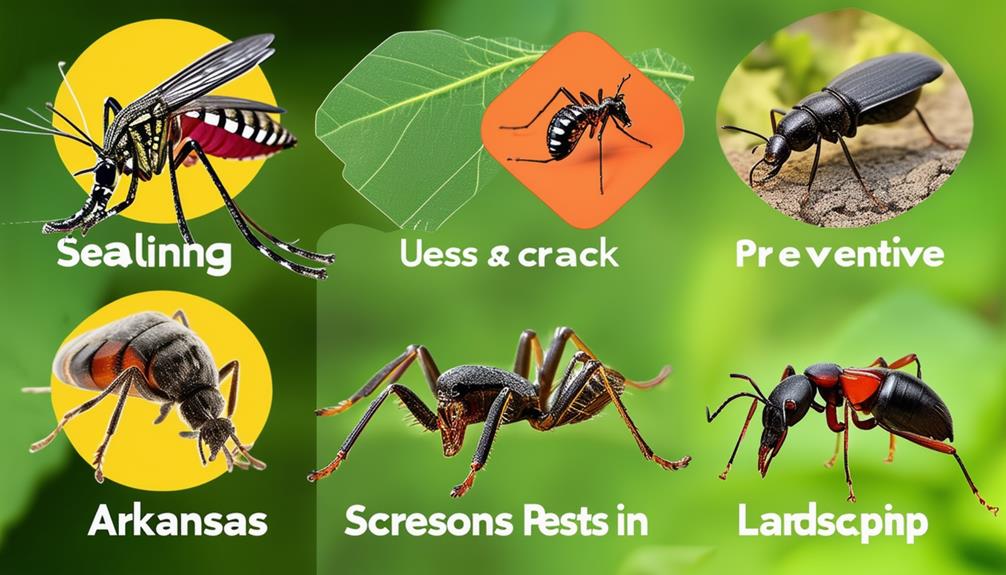Ants are one of the most common pests that homeowners have to deal with. Not only are they a nuisance, but they can also cause damage to your property and contaminate your food. Fortunately, there are several steps you can take to prevent ant problems from occurring in the first place. By taking a proactive approach to ant control, you can avoid the headaches and expense that come with an infestation.
In this article, we’ll cover some of the most effective methods for preventing ant problems. We’ll start by identifying common ant species and discussing their habits and behaviors. From there, we’ll move on to eliminating food sources and sealing entry points to make your home less appealing to ants. We’ll also explore natural repellents that can help keep ants at bay, as well as when it’s time to seek professional help. Whether you’re dealing with a current ant problem or hoping to prevent one in the future, this article will provide you with the information you need to keep your home ant-free.
Identifying Common Ant Species
Let’s take a closer look at some of the most common ant species you may encounter in your home. First off, there’s the odorous house ant, which is attracted to sweet and greasy foods. They often nest in wall voids and under floors, and can quickly become a nuisance if left unchecked. Next, we have the pavement ant, which is known for its habit of nesting under sidewalks and driveways. They are attracted to sweet foods, but also feed on other insects.
It’s also important to be aware of carpenter ants, which can cause significant damage to the structure of your home as they burrow through wood. They are attracted to moist or decaying wood, so it’s important to address any water damage or leaks in your home to prevent an infestation. Lastly, there’s the pharaoh ant, which is known for its ability to establish large colonies quickly. They are attracted to sweet and greasy foods, and can often be found nesting in hard-to-reach areas like wall voids and electrical outlets. By identifying these common ant species, you can take steps to prevent them from entering your home and causing problems.
Eliminating Food Sources
By removing any crumbs or spills, you’ll create an environment that’s less attractive to ants. Ants are attracted to any source of food, so it’s important to keep your kitchen and dining areas clean. This means wiping down counters and tables after every meal, sweeping or vacuuming the floor regularly, and storing food in sealed containers. Don’t forget to clean up spills right away, as even a small amount of sugar or other sweet substance can attract ants.
It’s also important to keep your outdoor areas clean and free of food debris. This includes cleaning up after outdoor meals, removing fallen fruit from trees, and making sure your garbage cans have tight-fitting lids. If you have pets, be sure to clean up their food and water dishes after every meal, and don’t leave pet food out overnight. By eliminating food sources, you’ll make your home and yard less attractive to ants, and reduce the likelihood of an infestation.
Sealing Entry Points
To keep ants out of your home, you should make sure to seal up any entry points they may be using, such as cracks in the walls or gaps around doors and windows. Ants are small creatures that can easily fit through even the tiniest of openings, so it’s important to be thorough when sealing up your home. Start by inspecting the exterior of your home for any cracks or gaps in the foundation, walls, or roof. Use caulk or weatherstripping to seal up these openings and prevent ants from entering your home.
Additionally, make sure to keep doors and windows tightly closed and install screens to prevent ants from crawling in through these openings. You can also use door sweeps to seal up gaps at the bottom of doors. By taking these steps to seal up your home, you can prevent ants from entering and causing problems inside. Remember to regularly inspect your home for any new entry points and promptly seal them up to maintain a ant-free environment.
Using Natural Repellents
You can easily keep those pesky ants out of your home by using natural repellents that will leave your living space smelling fresh and clean. One of the most effective natural repellents is vinegar, which can be used to wipe down surfaces and floors where ants may be entering. The strong smell of vinegar is enough to deter ants from coming inside, and it also acts as a cleaning agent to keep your home hygienic.
Another natural repellent option is citrus, which can be used in the form of essential oils or fruit peels. The strong scent of lemons, oranges, and grapefruits is unpleasant to ants and will prevent them from entering your home. Simply place citrus peels near entry points or use a few drops of essential oil in a spray bottle with water to create a natural repellent that will keep ants at bay. By using natural repellents, you can prevent ant problems in your home without the use of harmful chemicals.
Seeking Professional Help
If the natural repellents aren’t doing the trick, it may be time to seek professional help with your ant infestation. While there are many DIY methods for dealing with ant problems, some infestations require the expertise of a professional pest control company. These professionals have the tools, knowledge, and experience necessary to identify the source of the ant infestation and create a customized plan to eliminate it.
When seeking professional help, it’s important to do your research and choose a reputable pest control company. Look for companies with good reviews and certifications from organizations like the National Pest Management Association. Additionally, be sure to ask about their methods for dealing with ant infestations and any potential risks or side effects. With the help of a professional, you can finally say goodbye to your ant problem and enjoy a pest-free home.
Frequently Asked Questions
What are the risks of using chemical pesticides to control ant infestations?
Chemical pesticides used to control ant infestations can pose risks to human health and the environment. These risks include exposure to toxic chemicals, harm to beneficial insects, and contamination of soil and water sources.
How do ants communicate with each other and how can this knowledge be used to prevent infestations?
Ants communicate with each other through pheromones, which help them locate food sources and create trails for other ants to follow. Understanding this can aid in preventing infestations by disrupting their communication with natural repellents.
Can ants cause damage to structures or property?
Ants can cause damage to structures and property, especially if they start to build their nests inside. Carpenter ants are particularly destructive, as they can cause structural damage by hollowing out wood.
Are there any natural predators of ants that can be introduced to an area to control their population?
Natural predators such as birds, lizards, and certain species of ants can help control ant populations. However, introducing them may disrupt the ecosystem and cause unintended consequences. Other methods like removing food sources and sealing entry points are more effective.
How can one prevent ants from returning after a successful extermination?
To prevent ants from returning after extermination, clean up any food or water sources, seal entry points, and use deterrents like vinegar or cinnamon. Regularly inspect and maintain your property to prevent future infestations.
Conclusion
In conclusion, preventing ant problems requires identifying common ant species, eliminating food sources, sealing entry points, using natural repellents, and seeking professional help if necessary. By understanding the behavior and habits of ants, homeowners can take proactive measures to keep them at bay. Eliminating potential food sources and sealing entry points can greatly reduce the likelihood of an ant infestation. Natural repellents such as vinegar, lemon juice, and cinnamon can also be effective in deterring ants. However, if an infestation persists, seeking professional help may be necessary to ensure the problem is properly addressed. By following these steps, homeowners can effectively prevent and manage ant problems in their homes.





